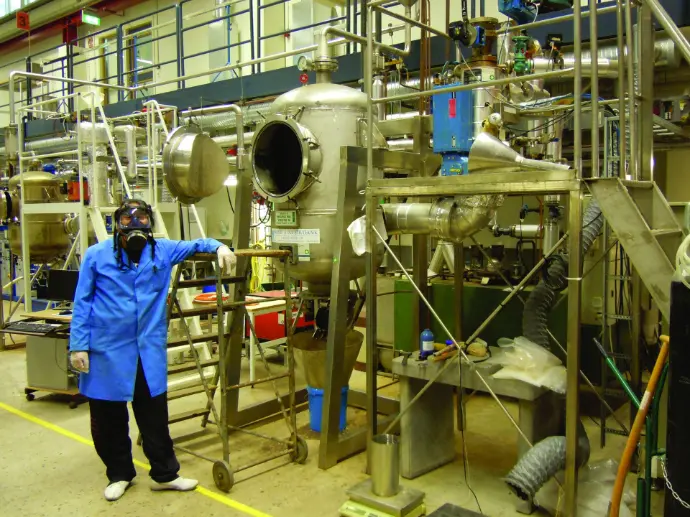How did the UMSA/Sida Program come about?
With the signing of a bilateral cooperation agreement in the year 2000, which promoted a process of institutional modernization and continuous improvement in research management, UMSA not only positioned itself at the forefront of public universities in Bolivia but also responded to the need for training human talent at the fourth level, that is, with a doctoral degree to contribute to regional and national development. UMSA, within the framework of the UMSA/Sida Program, works in collaboration with Swedish universities as counterparts in research and training. The aim is to strengthen the research capacity of this Higher Education Institution and its ability to train new generations of human talent in research.


Two decades building
SCIENTIFIC CAPABILITIES FOR UMSA
The bilateral collaboration with the Swedish International Development Cooperation Agency (Sida), established under an agreement signed in 2000, was the starting point for scientific and technical development at UMSA, the current capacity and maturity for research, the opening of new lines of research, the formation of multi- and transdisciplinary research teams, the pyramidal model of doctoral training, and the unprecedented pyramidal model for scaling projects that originated in the UMSA/Asdi Program. Currently, within the framework of the research culture, it includes strategic partners and new sources of national and international funding based on the technological infrastructure and human capital developed with the support of bilateral collaboration with the Kingdom of Sweden. The UMSA/Asdi Program 2021-2025 prioritized the following areas: Research Management, Agro-food, Natural Resources and Biodiversity, Technological and Productive Development, Health and Socioeconomic, Educational Cultural. These areas were agreed upon in coherence with the Social Determinants of Health and the United Nations Sustainable Development Goals (SDGs), the National Development Plan of the Plurinational State of Bolivia, the Departmental Development Plan, and the Research Policies of UMSA, within the framework of the Institutional Strategic Plan. The purpose of the UMSA/Sida Program is to contribute to strengthening the research capacities of professionals in specific areas of knowledge for the development of Bolivia.
Evolution of the UMSA-SIDA Program over the Decades
UMSA/Sida Program
2021 - 2025
The continuity of the UMSA/Sida Program for the period 2021 - 2025 strengthened the alliance for research and friendship between the Universidad Mayor de San Andrés and the Kingdom of Sweden. The agreement signed in May 2021, endorsed by the Honorable University Council of UMSA with Resolution No. 426/2021, establishes the objectives of the new phase of cooperation aimed at promoting the development processes of the La Paz department and the country through the generation of new knowledge, useful and transferable to social and productive sectors, as well as contributing to the advancement of universal knowledge and developing postgraduate training in sciences to enhance scientific research, technological development, and innovation.


UMSA/Sida Program
2013 - 2021
Within the framework of the agreement, the UMSA/Sida Program was implemented, built with a long-term vision. The program covered research areas in natural resources, food and food security, technology, health, and research management, with its components in research project management during the period 2013-2020. The development of this second phase of cooperation (2013-2020) allowed for the execution of 47 projects. Of these, 15 corresponded to research projects with doctoral training that were carried out under the sandwich model. In this model, researchers spent 6 months at universities in Sweden and another 6 months at UMSA working in the area of research and training. Additionally, 30 annual research projects were executed in various areas. Furthermore, 2 research management projects were implemented with the aim of strengthening the capacity and quality of research, graduate studies, social interaction, and innovation at UMSA.
UMSA/Sida Program
2000 - 2012
During the period between 2000 and 2015, the work carried out within the framework of cooperation translated into various actions with tangible results. One of the notable achievements was the execution of 35 projects conducted by researchers as an integral part of their doctoral training, adopting the sandwich model. This approach involved six months of immersion in universities in Sweden, followed by another six months at UMSA, allowing participants to consolidate their training and advance their research. Additionally, 96 competitive projects were implemented that not only represented the renewal of inter-institutional commitment but also outlined a strategic plan for future endeavors. These projects not only contributed to the continuous development of science but also demonstrated a strong commitment to collaboration between institutions, thus laying the groundwork for future initiatives.
